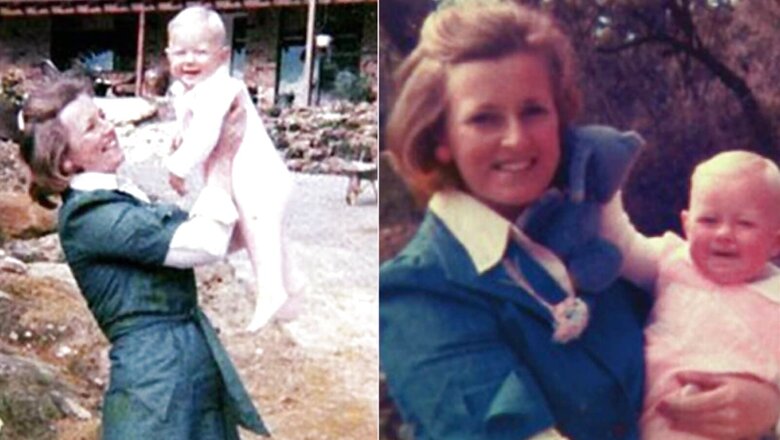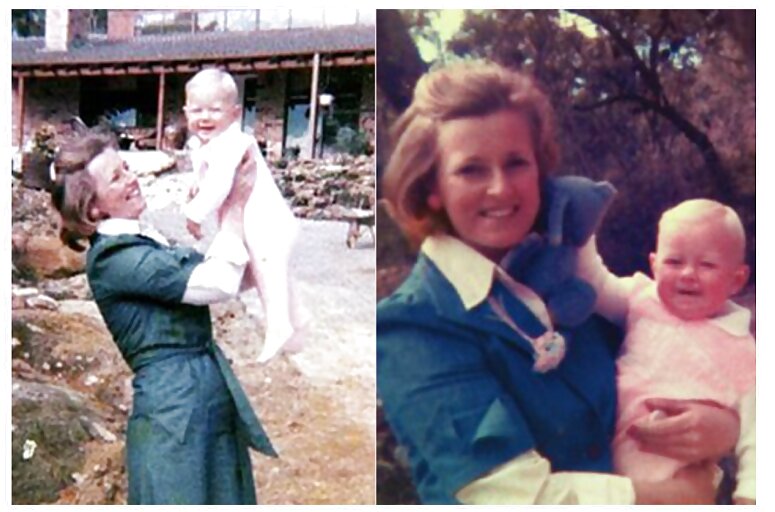
views
He was finally sentenced to prison after four decades of killing his wife. What led to it? A crime podcast.
Christopher Michael Dawson, now 74, had killed his wife Lynette in January 1982 to pursue a relationship with a teenage student he was having an affair with, and who had babysat and lived in his Sydney home, said a report by Reuters.
Dawson however claimed his wife had left him.
But after 36 years of a full life after committing the act, how did Dawson finally meet justice? It was after a popular crime podcast ‘The Teacher’s Pet’ in 2018 put pressure on the police to revisit their investigation. After that, the cold case against Christopher Dawson was reopened and further investigation was conducted.
News18 looks at the details of the case:
A Recap of Their Lives & the Murder
A former professional rugby league footballer who played in the 1970s, Dawson met Lynette Simms at a high school function in 1965, when they were both aged sixteen. They tied the knot in 1970, and went on to have two children together.
In January of 1982, Dawson’s wife Lynette vanished without a trace, according to a report by The Sydney Morning Herald, ‘the charming devil and his missing wife.’

Dawson extended an invitation to 16-year-old Joanne Curtis (his student who had also babysat at his home) to move into the family home just two days after Lynette was reported missing.
On the 18th of February in 1982, six weeks after his wife had vanished, he filed a missing person’s report for her, stating that she had left the marriage due to disagreements and had joined a commune. In 1983, he finalised the final stages of the divorce process.
In 1984, Dawson tied the knot with Joanne Curtis and the couple divorced in 1993.
Lynette Dawson’s dead body has never been found, but two separate coroner’s inquests were held in 2001 and 2003, and both of them came to the same conclusion: that Lynette Dawson must be dead and that she was most likely killed by a known individual. The 2003 inquest said Dawson should be charged in the case, the New York Times reported.
(What’s a Coroner’s Inquest?
According to a report by nidirect.gov.uk, independent judicial officers known as coroners are tasked with conducting investigations into deaths that have been reported to them. They will conduct any investigations that are required to determine the cause of death. This may include requesting a post-mortem examination, obtaining statements from witnesses and medical records, or holding an inquest.

An investigation into the circumstances surrounding a person’s passing is referred to as an inquest. The objective of the investigation is to ascertain the identity of the person who passed away, as well as the circumstances surrounding their passing, including the date, time, and location of their passing, so that their death can be officially registered. This is not a trial of any kind, the report explains.
As soon as the coroner’s investigation is finished, a date will be set for the inquest that will be held. The public and the media are permitted to attend inquests.
At an inquest, the coroners make the decision as to which witnesses will participate and give their testimony. The witnesses will first be questioned by a Coroner, and after that, “properly interested people” or their legal representatives may pose additional questions to the witnesses.)
How Was the Case Revived?
The year 2015 saw the launch of a brand new investigation by the police, during which officials provided additional evidence. In September 2018, authorities excavated the Dawsons’ home in the hope of finding her body; however, they were unsuccessful in their search, the NYTimes reported.
According to the police, the release of the podcast in 2018, which topped the charts in Australia, the United States, and Canada with more than 28 million downloads that year, was not “crucial” to the investigation but did help uncover new evidence.
The disappearance of Lynette Dawson was the subject of the Australian crime podcast The Teacher’s Pet, which was released in 2018. The podcast was distributed by the Australian newspaper, and Hedley Thomas, a journalist, served as the show’s host. Slade Gibson was the podcast’s producer. As of the year 2020, the series has been downloaded a combined total of close to 30 million times and has topped the podcast charts in Australia, the United Kingdom, Canada, and New Zealand.
The Teacher’s Pet podcast looked into the specifics of her marriage to rugby league player and teacher Chris Dawson, her disappearance, an extramarital affair between her husband and a sixteen-year-old school girl, allegations of sexual misconduct between teachers and students at Cromer High and other public high schools in the Northern Beaches, flaws in the police investigation, effects on the families involved, and the unwillingness of the Office of the Director of Public Prosecution to pursue the matter further, reports explained.
Hedley Thomas and Slade Gibson’s work received the highest honour in Australian journalism for their contributions, and the judges who bestowed the 2018 Gold Walkley award upon the two individuals stated that the 220,000-word podcast published by the Australian newspaper “uncovered long-lost statements and new witnesses, and prompted police to dig again for the body of Lyn Dawson, who disappeared from her home in 1982,” the Guardian said in its report.
On What Grounds Was Dawson Finally Charged?
The Guardian, in a report, listed five reasons that Justice Ian Harrison said assisted him in arriving at verdict of convicting Dawson:
First was his infatuation with JC, a teenage student from the school where he taught. Their relationship, before Lynette’s murder and after, was a strained affair, with the victim being in the knowledge of her husband’s affair and still wanting to stay in the marriage.
Harrison, said, “I I am satisfied that the prospect that he would lose [JC] so distressed, frustrated and ultimately overwhelmed him that, tortured by her absence up north, Mr Dawson resolved to kill his wife.”
The judge also concluded that based on Lynette’s behavior, she would not have left her husband as she was hopeful of reconcialition despite discovering his affair.
It was also found out that Dawson’s claims of his wife calling him multiple times after she dissapeared were false, one thread in the strings of the lies the convict was discovered to have lied to prosecution about.
Why Was the Podcast Temporarily Removed & a Comment on Media Trials
The podcast was removed from all distribution platforms by the Australian newspaper in April 2019, on the advice of the Office of the NSW Director of Public Prosecutions and in the interest of ensuring a fair trial.
There have been a few instances in which the genre of true-crime podcasting has swayed the administration of justice, the NYTimes said in its report; the murder charges against a Mississippi man named Curtis Flowers were dismissed a year ago after a witness recanted his story during an interview with the podcast “In the Dark.” The witness initially stated that Flowers had made a jailhouse confession, but he later recanted his statement.
And the success of “Serial” has made it easier for one of the show’s protagonists, Adnan Syed, to drag out the appeals process for his murder conviction.
A commentary on the media trial and how the judiciary in Australia attempts to sanitise itself from the media frenzy, by Richard Ackland published by the Guardian, said, “the media are engaged in a complex dance when reporting big murder stories. There’s the ka-ching factor – the sales and revenue driven by public interest; and there’s the long arm of the law’s insistence that potential jurors are not prejudiced about an accused, one way or the other.”
While the podcast’s role in this particular case was definitely positive in reigniting the process of justice for Lynnette, there have been questions on how much the media can influence the jury-based system in countries like the US, UK, despite jurors claimed to be shielded from bias.
In India, intense media coverage around high-profile murder cases has also been the subject of criticism. In the Aaftab-Shraddha murder case, former UP DGP Vikram Singh told BBC that the extensive media coverage in the case – where Aaftab Poonawalla is alleged to have killed his live-in partner – was “extremely irresponsible.”
“A ball-by-ball commentary is detrimental to the cause of the investigation and disrespects the deceased,” he told the BBC.
With inputs from Reuters
Read all the Latest Explainers here



















Comments
0 comment